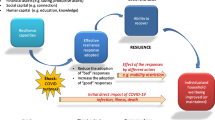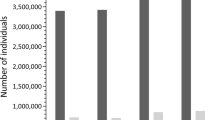Abstract
The majority of literature on Slow Food focuses on the organization or actors involved in the movement. There is a dearth of material analyzing Carlo Petrini’s aspirations for Slow Food, particularly in light of his desire within Slow Food Nation (2007) and Terra Madre (2010) to make “freewill giving a part of economic discourse.” This essay corrects the literature gap through historicizing and critiquing Petrini’s alternative to global capitalism while rooting it in actually existing practices. First, Petrini’s problematic conceptualization of freewill giving will be compared to feminist theorizations and documentations of the gift economy. Second, Petrini’s avoidance of the toxic mimic of the gift, its subsumption to capitalism, will be amended by discussing how the gifting of food aid and emergency food networks actually reproduces inequality, poverty, and hunger. Third, Petrini’s example of gifting by a Trappist Monastery will be juxtaposed to the ongoing direct action strategies of Food Not Bombs, a much stronger example of an oppositional gift economy, one that is subsequently repressed by the state. In doing so, this essay seeks to expand discussion of the gift economy within the alternative food movement while amending many of the theoretical, historical, and political problems embedded within Petrini’s work, which performs a strong disservice to the politics of possibility embedded within gifting.
Similar content being viewed by others
References
Abrahams, Y. 2007. The Khoekhoe free economy: A model for the gift. In Women and the gift economy: A radically different worldview is possible, ed. G. Vaughan, 217–221. Toronto: Inanna Publications and Education.
Andrews, G. 2008. The slow food story: Politics and pleasure. Kingston: McGill-Queens University Press.
Armstrong, J. 2007. Indigenous knowledge and gift giving: Living in community, In ed. Vaughan, G., 41–49. Canada: Inanna Publications and Education.
Bennholdt-Thomsen, V., and M. Mies. 1999. The subsistence perspective: Beyond the globalized economy. New York: Zed Books.
Bennholdt-Thomsen, V., N. Faraclas, and C. Von Werlhof. 2001. There is an alternative: Subsistence and worldwide resistance to corporate globalization. New York: Zed Books.
Breines, W. 1989. Community and organization in the New Left, 1962–1968: The great refusal. New Brunswick: Rutgers University Press.
Chrzan, J. 2004. Slow food: What, why, and to where? Food, Culture and Society 7(2): 117–132.
Dalla Costa, G.F. 2008. The work of love. Brooklyn: Automedia.
Donati, K. 2005. The pleasure of diversity in slow food’s ethics of taste. Food, Culture and Society 8(2): 227–242.
Friedmann, H. 1982. The political economy of food: The rise and fall of the postwar international food order. American Journal of Sociology 88: S248–S286.
Gibson-Graham, J.K. [1996] 2006. The end of capitalism (as we knew it): A feminist critique of political economy. Minneapolis: University Minnesota Press.
Jensen, D. 2006. Endgame, volume I: The problem of civilization. New York: Seven Stories Press.
Jones, P., P. Shears, D. Hillier, D. Comfort, and J. Lowell. 2003. Return to traditional values? A case study of Slow Food. British Food Journal 105(4/5): 297–304.
Kuokkanen, R.J. 2007a. Reshaping the university: Responsibility, indigenous epistemes and the logic of the gift. Vancouver: University of British Colombia Press.
Kuokkanen, R.J. 2007b. The gift logic of indigenous philosophies in the academy. In Women and the gift economy: A radically different worldview is possible, ed. G. Vaughan, 71–83. Toronto: Inanna Publications and Education.
Laudan, R. 2000. A world of inauthentic cuisine. In Proceedings, 1999 meetings Cultural and Historical Aspects of Food. Corvallis, Oregon. http://food.oregonstate.edu/ref/culture/laudan.html. Accessed 20 Feb 2011.
Laudan, R. 2001. A plea for culinary modernism: Why we should love new, fast, processed food. Gastronomica: The Journal of Food and Culture 1(1): 36–44.
Laudan, R. 2004. Slow Food: The French terroir strategy, and culinary modernism: An essay review of Carlos Petrini, slow food. Food, Culture and Society 7(2): 133–149.
Lotti, A. 2010. The commoditization of products and taste: Slow Food and the conservation of agrobiodiversity. Agriculture and Human Values 27: 71–83.
Mann, B.A. 2000. Iroquoian women: The Gantowisas. London: Praeger.
McHenry, K. 2012. Hungry for peace: How you can help end poverty and war with food not bombs. Tucson: See Sharp Press.
McMichael, P. 2007. Development and social change: A global perspective, 4th ed. Thousand Oaks: Pine Forge Press.
Miele, M., and J. Murdoch. 2002. The practical aesthetics of traditional cuisines: Slow food in Tuscany. Sociologia Ruralis 42(4): 312–328.
Mies, M. [1986] 1998. Patriarchy and accumulation on a world scale. New York: Zed Books.
Mies, M., and V. Shiva. 1993. Ecofeminism. New Jersey: Zed Books.
Mies, M., V. Bennholdt-Thomsen, and C. Von Werlhof. 1988. Women: The last colony. New Jersey: Zed Books.
Nosi, C., and L. Zanni. 2004. Moving from “typical products” to “food related services”: The Slow Food case as a new business paradigm. British Food Journal 106(10/11): 779–792.
Petrini, C. 2001. Slow Food: The case for taste. New York: Columbia University Press.
Petrini, C. 2007. Slow food nation. New York: Rizzoli Ex Libris.
Petrini, C. 2010. Terra Madre: Forging a new global network of sustainable food communities. White River Junction: Chelsea Green Publishing Company.
Pietrykowski, B. 2004. You are what you eat: The social economy of the slow food movement. Review of Social Economy 62(3): 307–321.
Poppendieck, J. 1985. Breadlines knee deep in wheat: Food assistance in the Great Depression. Piscataway: Rutgers University Press.
Poppendieck, J. 1999. Sweet charity? Emergency food and the end of entitlement. New York: Penguin.
Poppendieck, J. 2011. Free for all: Fixing school food in America. Berkeley: University of California Press.
Vaughan, G. 1997. For-giving: A feminist critique of exchange. Austin: Plain View Press.
Vaughan, G. 2007a. Women and the gift economy: A radically different worldview is possible. Toronto: Inanna Publications and Education.
Vaughan, G. 2007b. Introduction: A radically different worldview is possible. In Women and the gift economy: A radically different worldview is possible, ed. G. Vaughan, 1–38. Toronto: Inanna Publications and Education.
Vaughan, G. 2007c. Heterosexism and the norm of normativity. In Women and the gift economy: A radically different worldview is possible, ed. G. Vaughan, 199–214. Toronto: Inanna Publications and Education.
Weber, M. 1948. Politics as a Vocation. In From Max Weber: Essays in Sociology, ed. H.H. Gerth, and C.W. Mills, 77–128. New York: Routledge.
Acknowledgments
I would like to thank the three anonymous reviewers and the editor, Harvey James, for their constructive comments that have significantly strengthened this paper. I also owe an acknowledgment of appreciation to Michael Menser and Tristan Quinn-Thibodeau for helping me work through my thoughts on the gift economy and the Slow Food movement. All claims and errors are my own.
Author information
Authors and Affiliations
Corresponding author
Rights and permissions
About this article
Cite this article
Myers, J. The logic of the gift: the possibilities and limitations of Carlo Petrini’s slow food alternative. Agric Hum Values 30, 405–415 (2013). https://doi.org/10.1007/s10460-012-9406-6
Accepted:
Published:
Issue Date:
DOI: https://doi.org/10.1007/s10460-012-9406-6




